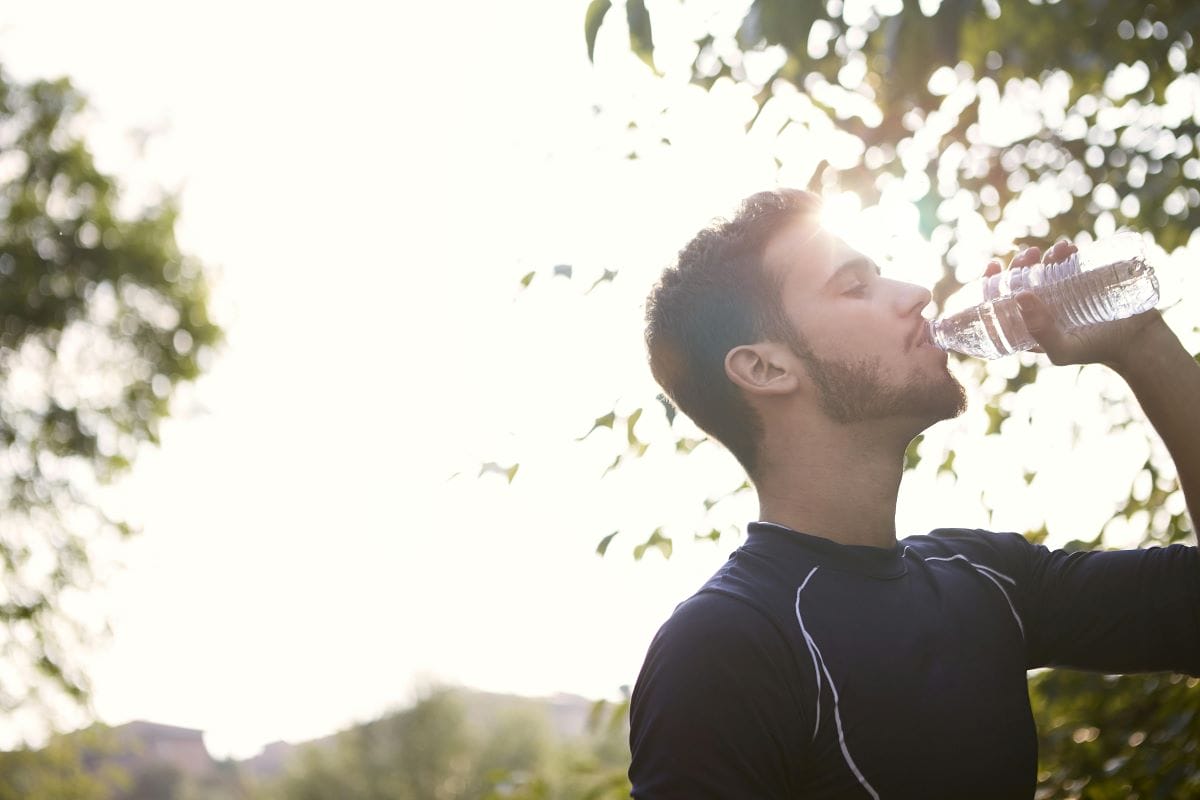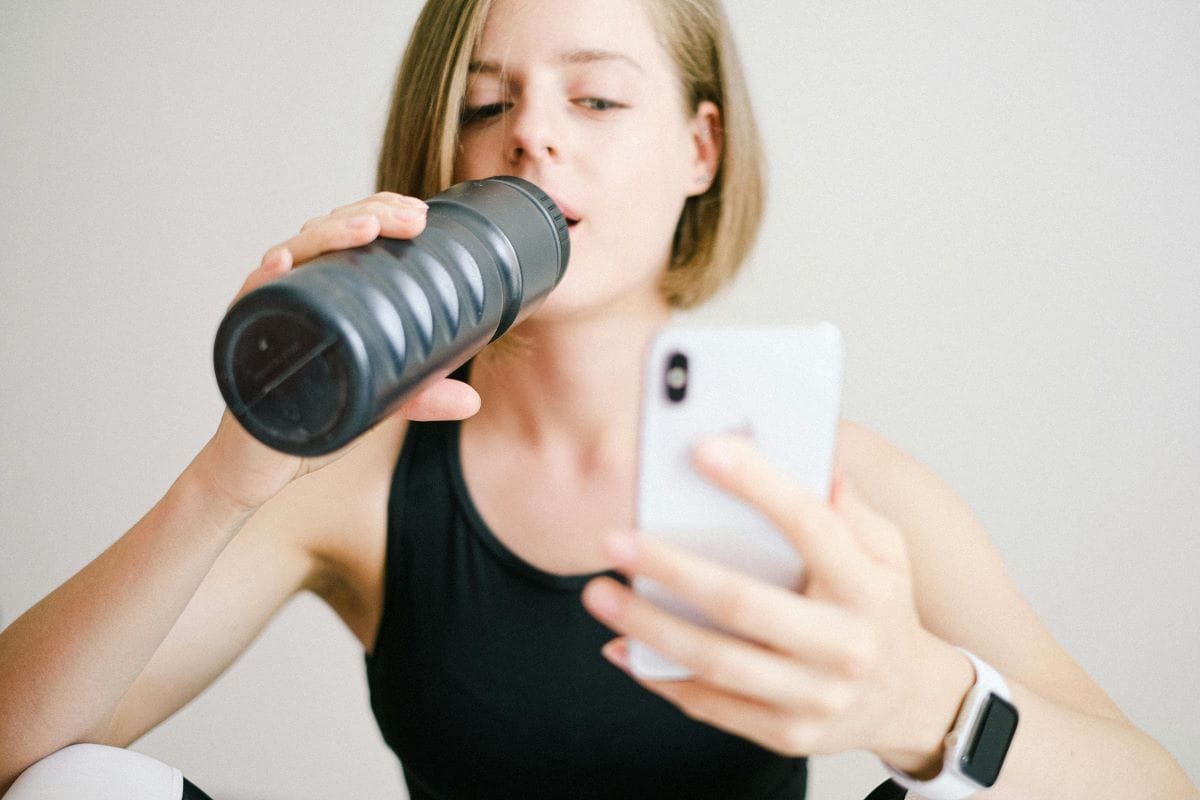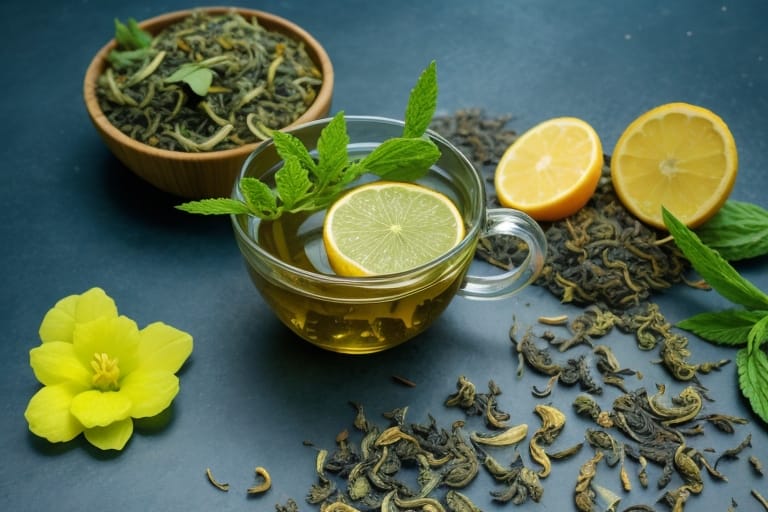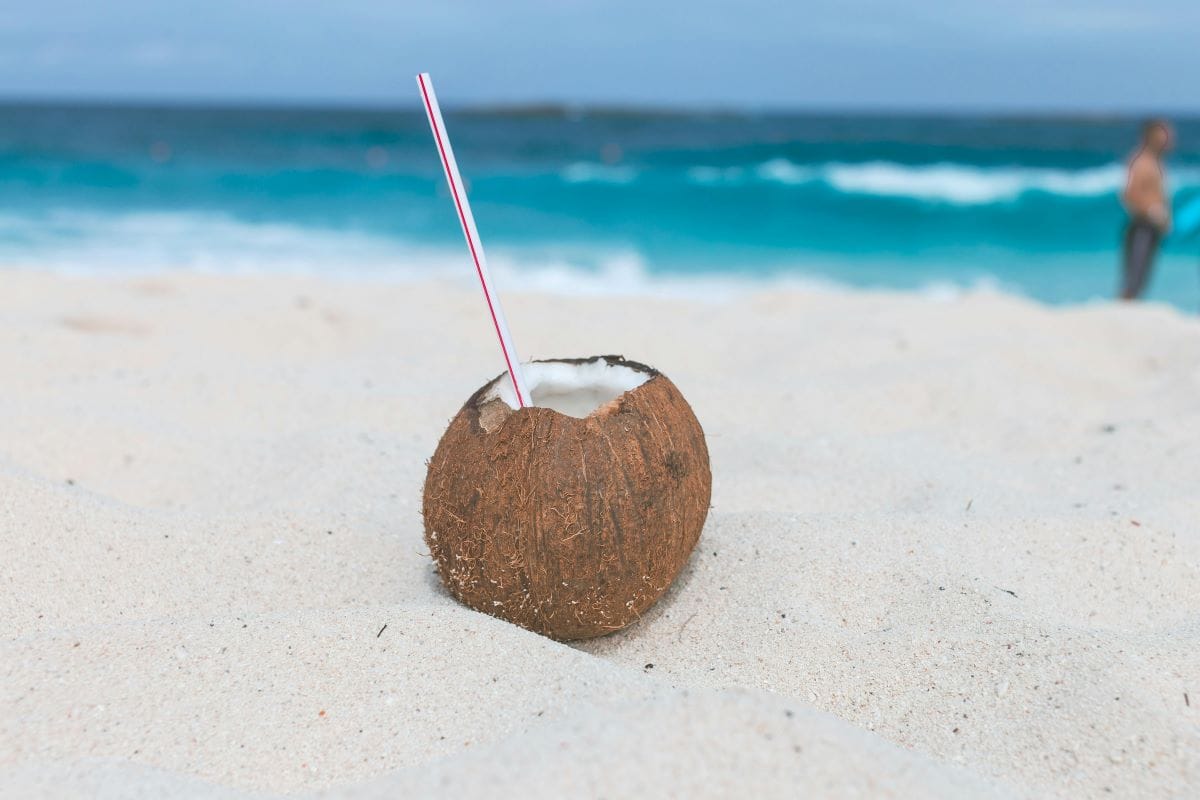Drinking water is essential for staying healthy and maintaining optimal bodily functions. However, many people struggle to consume enough water throughout the day, leading to dehydration and other health issues. In this comprehensive guide, we’ll provide practical tips on how to optimize your daily water intake and make hydration a sustainable part of your lifestyle.

Key Takeaways:
- Healthy hydration habits are crucial for overall well-being.
- Drinking enough water is essential for maintaining optimal bodily functions.
- Many people struggle to consume enough water throughout the day.
- Optimizing your daily water intake can have numerous health benefits.
- Making hydration a sustainable part of your lifestyle is crucial for long-term health.
I. Understanding Hydration and its Benefits
Water is crucial for the proper functioning of the body. Understanding the importance of hydration will help you maintain healthy habits and optimize your bodily functions. Staying hydrated helps regulate body temperature, aids in digestion, and keeps joints lubricated. Proper hydration also promotes healthy skin and supports the immune system.
The benefits of staying hydrated go beyond physical health. Studies show that dehydration can negatively impact cognitive function, causing headaches, mood changes, and fatigue. Adequate hydration is essential for maintaining focus and concentration.
In short, staying hydrated is vital for overall health and well-being. In the next section, we’ll explore how to calculate your daily water intake to ensure you’re meeting your hydration needs.
II. Calculating Your Daily Water Intake
Staying hydrated is essential for maintaining good health, but how much water do you actually need? Calculating your daily water intake can help ensure that you’re getting the right amount of hydration for your body’s needs.
A. Factors that Affect Daily Water Intake Needs
Several factors can impact how much water you should be drinking each day, including:
- Age
- Gender
- Physical activity level
- Climate
- Body weight
Calculating your daily water intake can help you determine the specific amount of water you need to drink to meet your body’s unique needs.
B. Calculating Your Daily Water Intake
A general rule of thumb for calculating daily water intake is to drink at least eight 8-ounce glasses of water per day. However, this may not be adequate for everyone. To determine your ideal daily water intake, consider the following formula:
Body weight (in pounds) x 2/3 = Daily water intake (in ounces)
For example, if you weigh 150 pounds, your daily water intake would be 100 ounces (150 x 2/3 = 100). This total includes all sources of liquid, including beverages and water-rich foods like fruits and vegetables.
C. Tracking Your Daily Water Intake
Now that you know how much water you should be drinking each day, tracking your daily water intake can help ensure that you’re meeting your hydration goals. Consider using a water bottle with measurement markings or a hydration tracking app to keep tabs on your daily water intake.
By calculating your daily water intake and tracking your hydration progress, you can optimize your hydration habits and support your overall health and well-being.
III. Tips for Drinking More Water
Drinking an adequate amount of water per day is essential to maintain optimal health and energy levels. Unfortunately, many of us still struggle to drink enough water each day. Here are some practical tips on how to drink more water:
- Flavor your water:Adding fresh fruits, such as lemon or berries, or herbs like mint can add a flavor boost without added sugar.
- Invest in a reusable water bottle:Having a water bottle handy at all times encourages you to stay hydrated while on-the-go.
- Set reminders:Schedule reminders on your phone or computer to drink water regularly throughout the day.
- Track your intake:Keep track of the amount of water you drink each day using a journal or an app on your phone.
- Try water-rich foods:Incorporate foods with high water content, such as cucumbers and watermelon, into your diet to boost hydration levels.

In addition to these practical tips, drinking enough water provides numerous benefits to your overall health. From improving skin health to supporting weight loss, staying hydrated should be an essential part of a healthy lifestyle.
IV. Healthy Alternatives to Plain Water
While drinking plain water is the best way to stay hydrated, you can also opt for other healthy beverages and foods to fulfill your daily water intake. Here are some tasty and hydrating alternatives to plain water:
A. Herbal Teas
Herbal teas are a wonderful way to boost your hydration intake. Some teas, such as peppermint or ginger tea, have added benefits of soothing the stomach and aiding in digestion.

B. Infused Water
Adding fruits or herbs to your water can add a refreshing twist and make hydration more enjoyable. Try adding lemon or cucumber to your water for a delicious and hydrating treat
C. Coconut Water
Coconut water is a great natural electrolyte and hydrating alternative to plain water. It also provides added nutrients like potassium and magnesium.

D. Hydrating Fruits and Vegetables
Fruits and vegetables with a high water content, such as watermelon, cucumber, and celery, can also help you stay hydrated. These foods are not only great for hydration but also provide essential vitamins and minerals.
Remember, while these alternatives can be a delicious way to meet your hydration needs, nothing beats good old-fashioned water. So, keep hydrating and staying healthy!
V. Hydration and Physical Activity
Staying hydrated during physical activity is crucial for optimal performance and reducing the risk of dehydration. When we exercise, we lose fluids through sweat, increasing our body’s need for hydration. To stay hydrated, it’s essential to drink fluids before, during, and after exercise.
A. The Importance of Staying Hydrated
Staying hydrated during physical activity helps regulate body temperature, lubricate joints, and transport nutrients throughout the body. Dehydration can lead to reduced endurance, increased fatigue, and impaired cognitive function, among other health risks.
B. Signs of Dehydration to Watch Out For
- Dark yellow or amber-colored urine
- Thirst
- Dizziness or lightheadedness
- Cramping
- Headache
If you experience any of these symptoms, it’s crucial to rehydrate immediately.
C. Effective Strategies for Preventing Dehydration
- Drink fluids before, during, and after exercise
- Avoid coffee, alcohol, and sugary drinks before exercise
- Consider a sports drink if exercising for longer than an hour or in extreme heat
- Monitor your urine color to ensure proper hydration
- Take breaks and rest when necessary
By incorporating these strategies into your exercise routine, you can stay adequately hydrated and perform at your best.
Tip: Don’t wait until you feel thirsty to drink fluids. Thirst is a sign that your body is already starting to become dehydrated.
VI. Hydration for Cognitive Well-being
Staying hydrated is not just essential for physical health but cognitive function too. When you’re dehydrated, your cognitive abilities can significantly decline, leaving you feeling fatigued and unable to focus. Drinking enough water throughout the day can help enhance focus and concentration, increasing overall brain function.
The benefits of staying hydrated go beyond physical health, and research has shown that dehydration can negatively impact mood and mental health. Dehydration can also lead to increased stress levels, which can further exacerbate cognitive decline.
So, how much water should you drink to keep your brain functioning at its best? The answer depends on your body size, activity level, and age. However, as a general rule, drinking at least eight cups of water per day can help maintain cognitive function.
To ensure you stay hydrated and reap the cognitive benefits, keep a water bottle with you at all times. Set reminders throughout the day to sip on water, and remember to hydrate before, during, and after exercise or periods of prolonged activity.
By prioritizing hydration, you can maintain cognitive function, boost your mood, and feel your best every day.
VII. Hydration Tips for Different Age Groups
Staying hydrated is crucial for people of all ages. However, hydration needs may change as we grow older. Here are some specific tips for staying hydrated at different stages in life:
A. Children
- Encourage children to drink water regularly throughout the day
- Offer water-rich fruits and vegetables as snacks, such as watermelon and cucumber
- Limit the intake of sugary drinks, such as soda and juice
B. Teens
- Teens should consume at least 8-10 glasses of water per day
- Encourage them to bring a refillable water bottle to school or activities
- Avoid energy drinks, which can be high in sugar and caffeine
C. Adults
- Drink water throughout the day, especially before, during, and after exercise
- Try incorporating hydrating foods into your diet, such as soups and smoothies
- Limit alcohol and caffeine intake, as they can dehydrate the body
D. Older Adults
- Stay hydrated by drinking water, low-fat milk, or herbal tea
- Avoid excess salt in the diet, as it can lead to dehydration
- Consult with a healthcare provider to determine proper hydration needs and strategies
By following these age-specific hydration tips, you can ensure that you are staying hydrated and maintaining overall health and wellness.
VIII. Sustainable Hydration Practices
Drinking water is not only important for our health and well-being, but it also plays a significant role in promoting a sustainable planet. Here are some eco-friendly tips for maintaining healthy hydration habits:
1. B.Y.O.B. (Bring Your Own Bottle)
Invest in a reusable water bottle and carry it with you wherever you go. This way, you can easily refill it and avoid single-use plastic bottles that contribute to environmental pollution. Plus, reusable bottles are often made with sustainable materials such as stainless steel or glass.
2. Drink Filtered Water
Using a filtration system, such as a pitcher or faucet attachment, can improve the taste and quality of your tap water. Additionally, it reduces the need for purchasing bottled water, which can significantly minimize plastic waste in landfills and oceans.
3. Choose Sustainable Beverages
While staying hydrated with water is the best choice, incorporating other hydrating beverages can also contribute. Opt for drinks that come in recyclable or compostable packaging, such as plant-based water bottles or biodegradable cups.
4. Reuse and Recycle
Take any opportunity to reuse and recycle. For example, repurpose glass jars or containers to hold your water or reuse plastic bottles a few times before recycling them. If you have plastic water bottles that cannot be reused, make sure to recycle them properly.
5. Support Sustainable Brands
Look for brands that prioritize sustainability and eco-friendliness in their products. Supporting such brands can encourage the shift towards sustainable and healthy hydration practices while protecting our planet.
Implementing sustainable hydration practices not only promotes a healthier lifestyle but also contributes to environmental conservation. Making small changes in our habits can create a significant impact on our well-being and our planet. Start incorporating these tips into your routine today.
Conclusion
Healthy hydration habits are crucial for a vibrant and thriving life. By understanding the benefits of staying hydrated, calculating your daily water intake, and implementing practical tips for optimal hydration, you can unlock a healthier version of yourself. Remember to drink water regularly, even when you don’t feel thirsty, and try incorporating healthy alternatives to plain water, such as herbal teas and hydrating fruits and vegetables.
Additionally, it’s important to stay hydrated during physical activity and prioritize your cognitive well-being by maintaining proper hydration levels. Make sure to adjust your hydration habits according to your age group, and lastly, adopt sustainable practices to maintain healthy hydration habits while contributing to environmental conservation. Start mastering healthy hydration habits today and enjoy the benefits it brings!
FAQ
What are the benefits of staying hydrated?
Staying hydrated has numerous benefits for your overall health. It helps maintain proper bodily functions, supports digestion, regulates body temperature, boosts energy levels, improves skin health, aids in weight management, enhances cognitive function, and promotes a healthy immune system.
How much water should I drink every day?
The ideal daily water intake varies depending on individual factors such as age, weight, activity level, and climate. As a general guideline, aim to drink at least eight glasses of water, or approximately two liters, per day. However, it’s essential to listen to your body and adjust your intake accordingly.
How can I drink more water?
If you struggle to drink enough water, try these tips: carry a reusable water bottle with you at all times, infuse your water with fruits or herbs for flavor, set reminders to drink water throughout the day, track your water intake using an app or journal, and make water more accessible by keeping a bottle within reach.
Are there any alternatives to plain water for staying hydrated?
While water is the best choice for hydration, there are other options. Herbal teas, infused water with fruits or cucumbers, coconut water, and hydrating fruits and vegetables like watermelon, cucumbers, and oranges can also contribute to your daily water intake.
Why is hydration important during physical activity?
Staying hydrated during exercise is crucial as your body loses water through sweat. Proper hydration helps maintain electrolyte balance, regulates body temperature, improves endurance, and prevents muscle cramps. Make sure to drink water before, during, and after your workouts.
How does hydration affect cognitive well-being?
Hydration plays a key role in cognitive function. Dehydration can impair focus, concentration, memory, mood, and overall brain function. By staying hydrated, you can support optimal brain performance and enhance mental clarity.
Are there specific hydration tips for different age groups?
Yes, hydration needs vary across different age groups. For children, encourage regular water breaks and offer hydrating foods. Adults should prioritize drinking water before meals and during physical activity. Older adults may need reminders to drink water due to decreased thirst sensation.
How can I practice sustainable hydration?
To practice sustainable hydration, use reusable water bottles instead of single-use plastic bottles, opt for filtered tap water instead of buying bottled water, and reduce plastic waste by avoiding disposable straws and cups. Additionally, consider donating to organizations focused on providing clean drinking water to those in need.




